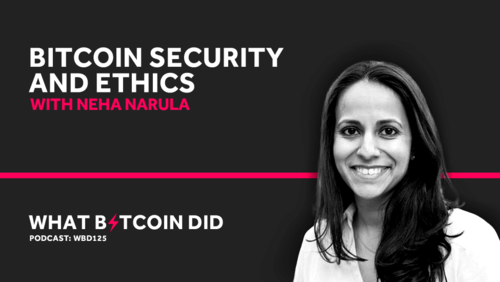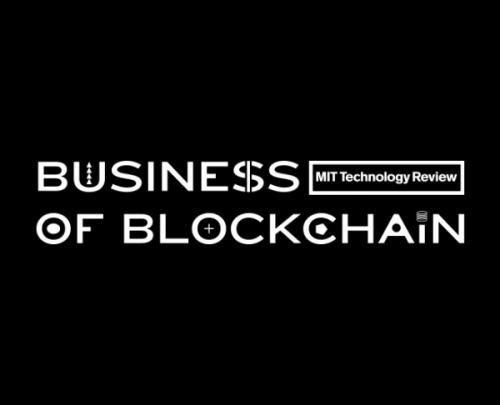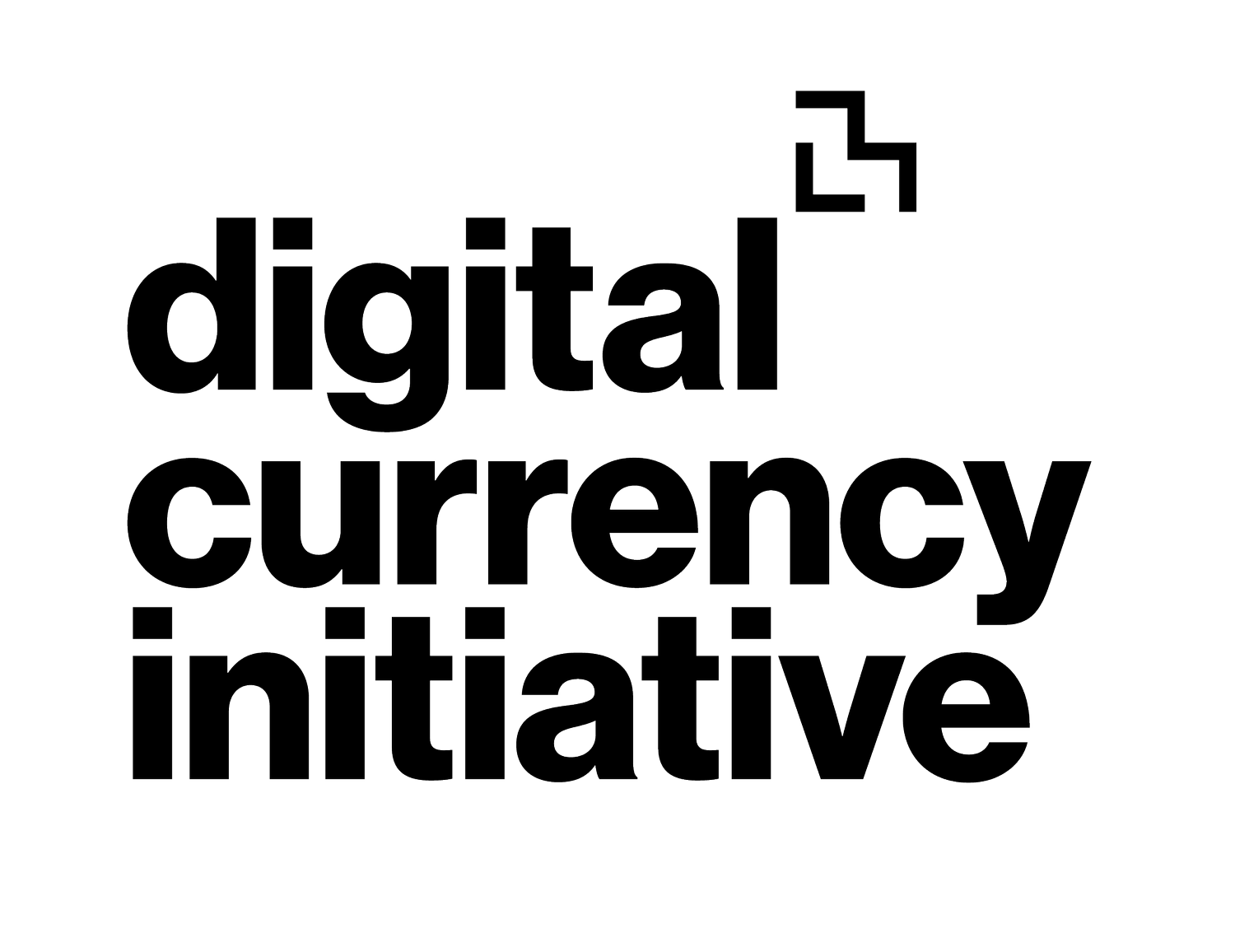
DCI's Neha Narula Discusses CBDC in WSJ's 'Does the U.S. Need a National Digital Currency?'
Proponents say payments with a digital dollar would be faster and easier. Opponents say it would be costly and inefficient.
The nature of money is changing, and central banks around the world are debating whether they need to change with it.

Forbes's "Bitcoin Rival Suffers Devastating Attack" reviews DCI's James Lovejoy's discovery of a '51% Attack'
“Bitcoin gold, a relatively minor cryptocurrency that split off from the original bitcoin blockchain in late 2017, has suffered a so-called 51% attack resulting in over $72,000 worth of bitcoin gold tokens being double spent.
'MIT researchers identify security vulnerabilities in voting app' by MIT News discusses research by DCI's Neha Narula, Sunoo Park and DCI Advisor Ron Rivest
“In recent years, there has been a growing interest in using internet and mobile technology to increase access to the voting process. At the same time, computer security experts caution that paper ballots are the only secure means of voting.
Now, MIT researchers are raising another concern: They say they have uncovered security vulnerabilities in a mobile voting application that was used during the 2018 midterm elections in West Virginia. Their security analysis of the application, called Voatz, pinpoints a number of weaknesses, including the opportunity for hackers to alter, stop, or expose how an individual user has voted. Additionally, the researchers found that Voatz’s use of a third-party vendor for voter identification and verification poses potential privacy issues for users.”

CNBC Interviews DCI's Neha Narula and reports on WEF Davos 2020 'Calls for a US ‘digital dollar’ rise as China powers ahead with a digital yuan’'
DCI’s Neha Narula was interviewed by CNBC whilst she was participating at the World Economic Forum in Davos. The article titled ‘Calls for a US ‘digital dollar’ rise as China powers ahead with a digital yuan’ and was published on Jan 23rd 2020.

'Crypto Thoughts From Davos: Encouraging, But Beware Unintended Consequences' Covers the panel 'Creating a Credible and Trusted Digital Currency' at WEF 2020
DCI’s Neha Narula was part of a panel ‘Creating a Credible and Trusted Digital Currency’, Forbes reporter Robert Anzalone covers the story in ‘Crypto Thoughts From Davos: Encouraging, But Beware Unintended Consequences’

DCI's Robleh Ali was quoted in MIT Technology Review's 'An elegy for cash: the technology we might never replace'
Cash is gradually dying out. Will we ever have a digital alternative that offers the same mix of convenience and freedom?
by Mike Orcutt
Jan 3, 2020
Think about the last time you used cash. How much did you spend? What did you buy, and from whom? Was it a one-time thing, or was it something you buy regularly?
The New York Times quotes Neha Narula in 'Twitter and Facebook Want to Shift Power to Users. Or Do They?'
A decentralized internet was hailed as a way to dethrone Twitter and Facebook. But to the tech giants, the idea could unload some of their burdens.
By Nathaniel PopperDec. 18, 2019. The New York Times.
SAN FRANCISCO — Not so long ago, the technology behind Bitcoin was seen in Silicon Valley as the best hope for challenging the enormous, centralized power of companies like Twitter and Facebook.
Now, in an unexpected twist, the internet giants think that technology could help them solve their many problems.

Coindesk Article: 'Even if a Thousand Projects Don’t Make It, Blockchain Is Still a Change Catalyst' by DCI Advisor Gary Gensler
This post is part of CoinDesk's 2019 Year in Review, a collection of 100 op-eds, interviews and takes on the state of blockchain and the world. Gary Gensler is a professor at the MIT Sloan School of Management, Co-Director of MIT’s Fintech@CSAIL and Senior Advisor to the MIT Media Lab Digital Currency Initiative. He was formerly Chairman of the U.S. Commodity Futures Trading Commission, Under Secretary of the Treasury, and a partner at Goldman Sachs.

DCI's Neha, Rob and Gary engage in National Crisis Simulation 'Cryptocurrency and national insecurity'. Review by The Harvard Gazette
The year is 2021, and the nation is in crisis. North Korea has just tested a missile that will soon be capable of delivering a nuclear warhead to the continental U.S. The move took Washington by surprise as the project was likely funded via a new Chinese digital currency, which allowed North Korea to bypass the global banking system. In response, the National Security Council House has gathered in the White House Situation Room to formulate short- and long-term responses.
“Digital Currency Wars: A National Security Crisis Simulation” unfolded before a packed audience in Kennedy School Forum on Tuesday night. Hosted by the Economic Diplomacy Initiative and co-sponsored by the Belfer Center for Science and International Affairs, the exercise brought together administration veterans, career diplomats, and academics to dramatize a very real prospect — the rise of an encrypted digital currency that would upend the U.S. dollar’s dominance and effectively render ineffective economic sanctions, like those currently applied to North Korea.

CES Summit review by Bitcoin Magazine: 'Cryptoeconomic Systems Launched as Open-Source Journal and Conference’
MIT’s Digital Currency Initiative (DCI) has announced the launch of Cryptoeconomic Systems (CES), the name of both a forthcoming conference in March 2020 and a new, open-access journal intended to bring a scholastic level of quality in research and reviews to the world of cryptocurrency, outside of the traditional publication channels.
DCI's Tadge interviewed by Olga Kharif for Bloomberg article 'The World’s Most-Used Cryptocurrency Isn’t Bitcoin'
By Olga Kharif
September 30, 2019, 8:00 PM EDT Updated on October 1, 2019, 7:42 AM EDT
What’s the world’s most widely used cryptocurrency? If you think it’s Bitcoin, which accounts for about 70% of all the digital-asset world’s market value, you’re probably wrong.

Podcast: DCI's Neha Narula was interviewed for 'WhatBitcoinDid' on Bitcoin Security and Ethics.
While I was in Boston, I sat down with Neha Narula, the Director at MIT’s Digital Currency Initiative. We discuss bugs in Bitcoin, Proof of Work being too risky and whether Bitcoin developers are ethical.

Podcast: DCI's Tadge Dryja was interviewed for 'WhatBitcoinDid' on Utreexo
In this interview, I talk with Tadge Dryja, a research scientist at MIT's Digital Currency Initiative and the co-author of the Lightning Network whitepaper. Tadge recently published a new whitepaper called Utreexo, a scaling proposal for Bitcoin aimed at minimising storage requirements needed to run the Bitcoin protocol.

Podcast: DCI's Neha Narula interviewed by Hari Sreenivasan for CNN's Amanpour
“Republican Senator Mitt Romney and Democratic Senator Chris Murphy join Christiane Amanpour from Washington D.C. to discuss their bipartisan trip to the Middle East and the growing tensions between the U.S. and Iran. Bill Weld, the only Republican challenging President Trump in the 2020 election talks about why he decided to run. Our Hari Sreenivasan talks to Neha Narula, the Director of the Digital Currency Initiative at the MIT Media Lab, about the future of cryptocurrencies.” Amanpour Podcast

Business of Blockchain's 'Roundtable: Stablecoins - Designing a Price-Stable Cryptocurrency' Featuring DCI's Rob Ali, MetaStable Capital's Haseeb Qureshi and Moderated by DCI's Rhys Lindmark
View this and all of the Business of Blockchain videos here

DCI's Tadge Dryja interviewed by WHAT BITCOIN DID for a podcast on 'The Limitations of Lightning'
In this episode for Lightning Month, I talk with Tadge Dryja, the co-author of the Lightning Network whitepaper. We discuss the limitations of the lightning network, why Bitcoin might not be for everyone, alternative scaling ideas, fees and inflation.

DCI Mentioned in BBC's 'Should Google, Amazon and Facebook fear this woman?'
Competition authorities don't like it when big companies merge to the detriment of consumer choice, which is why Sainsbury's and Asda are finding it so hard to get their proposed tie-up past the UK's Competition and Markets Authority.
Big tech, however, is a different kettle of fish.
"As it stands, it is difficult for users to switch between platforms," notes the MIT Digital Currency Initiative and the Center for Civic Media, "and most mega-platforms do not interoperate".
In other words, once you've bought into them, you're stuck.

MIT Technology Review and MIT Media Lab Digital Currency Initiative Announce 2019 Business of Blockchain Conference on May 2
Today, MIT Technology Review announced the third annual Business of Blockchain event, which will take place on May 2, 2019 at the MIT Media Lab. The event is held in collaboration with the Digital Currency Initiative, an MIT Media Lab research group focusing on cryptocurrencies and their underlying technology, and brings together industry leaders and pioneers in this emerging field to examine the technology, ethics, and impact of blockchains.
Knowledge @ Wharton's 'How a New Technology Can Disrupt the Global Supply Chain'
An interdisciplinary team from MIT, Wharton and Boston College has created a new blockchain-based system that has the potential to disrupt the global supply chain. Called ‘b_verify,’ the system is designed to help small and medium-size enterprises — especially those in developing nations — get financing from lenders at potentially better terms while mitigating warehouse deposit fraud. The system brings greater transparency to a key part of the supply chain, which can have a big impact on global trade financing. Bverify introduces a series of blockchain technology innovations tailored to facilitate supply chain finance and operations management.
DCI's Director interviewed for Fortune's latest article: 'Zcash Discloses Vulnerability That Could Have Allowed 'Infinite Counterfeit' Cryptocurrency'
On March 1 of last year, Ariel Gabizon was tidying up a presentation he was preparing to deliver the following day at a financial cryptography conference on the Caribbean island of Curaçao when he spotted a seemingly small mathematical mistake that could, he realized, jeopardize billions of dollars in capital.
